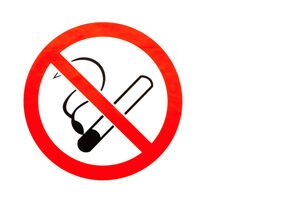Two award-winning non-profit groups that have led the fight against tobacco in Canada are preparing to close their doors after the money they had expected to receive as part of the most recent federal budget failed to materialize, according to a story by Gloria Galloway for the Globe and Mail.
Galloway reported that the Non-Smokers’ Rights Association (NSRA) and Physicians for a Smoke-Free Canada (PSC) had been limping along on a combination of savings, provincial help, and the work of volunteers since their federal funding was cut by the former Conservative government in 2012.
Health experts and organizations across Canada had expected that the Liberal government’s promise to renew the federal Tobacco Control Strategy, which expired on March 31, would include support for the two organizations.
Instead, the government has said the $11-million that was committed to the strategy this year and the $16-million promised for next year will be used to stop the influx of contraband tobacco and to pay for unspecified ‘targeted actions’ to help Canadians quit smoking.
The full story is at: https://www.theglobeandmail.com/politics/article-two-leading-canadian-anti-tobacco-groups-to-shut-down-after-ottawa/
Category: Regulation

Anti-tobacco groups closing

Ban produces rapid results
The anti-smoking bill, which was introduced in the Czech Republic in May last year, has already had a positive effect on people’s health, according to a Radio Prague report citing the results of a study newly-released by the Prague-based Institute of Health Information and Data.
The comparative study, which covered the period between June 2016 and November 2017, was said to have shown that there were more than 13 percent fewer heart attacks and 16 percent fewer patients hospitalized with heart problems. It wasn’t stated, but has to be assumed, that the drop in such hospitalizations occurred after the introduction of the bill’s smoking ban.
Eva Králíková, the country’s leading anti-smoking campaigner, admitted that the figures were only preliminary, but said she believed that they ‘definitely show a positive trend’.
“The institute compared the number of hospitalizations due to acute heart attack and other cardiovascular diagnoses as well as acute asthma and the decrease was significant, especially in the age group under 60, which suggests that it happened due to smoke-free legislation, said Králíková.
There have been several attempts to turn the smoking ban into smoking restrictions, and the Lower House of Parliament is currently debating whether to pass a proposal put forward by Civic Democrat deputy Marek Benda.
The proposal envisages creating separate smoking areas in pubs with their own ventilation, and suggests that the owners of bars with an area of 80 square meters or smaller could decide whether or not to allow smoking.
But, at the same time, more than 2,000 Czech doctors have signed a petition opposing any attempts to re-open a debate on the smoking ban.
Jigsaws for prisoners
A report in the Scottish Sun describing how prisoners in Scottish jails could be given jigsaws and colouring books to wean them off cigarettes has been met with incredulity.
“Smoking is one of the few pleasures many prisoners enjoy,” said Simon Clark, director of the smokers’ group Forest.
“That’s why tobacco is an important currency in prison.
“It’s laughable to think you can replace it with jigsaws or colouring books.
“Smoking is not a right but if inmates wish to smoke there should be areas where they can light up without the long arm of the nanny state denying them that small comfort.
“If, on the other hand, the plan is to treat them like children, don’t be surprised if they behave like children.”
Indian students rebel
A decision by the authorities at the Indian Institute of Technology, Delhi (ILT-D), to take action against students found smoking and drinking on the campus has set off angry reactions, according to a story by Fareeha Iftikhar for DNA India.
The engineering students at the premier institute have been asked to sign an undertaking declaring that they won’t smoke cigarettes or consume alcohol on the premises.
Citing the country’s anti-drug laws, IIT-D has said that any violation could lead to ‘expulsion’.
According to the IIT-D administration, it issued the diktat after discussing a code of conduct with students’ representatives.
But the students, particularly those doing post-graduate work, are in no mood to buy this argument. Some do not believe that the diktat was ever part of the code of conduct.
The institute cannot have the same set of metrics for everyone at IIT-D, said a student pursuing a PhD in management. “We are not against the move as it is for the betterment of those who are in their early 20s,” the student was quoted as saying. “But why students above 25 are being directed to sign such undertakings of moral policing?”
The upset students at IIT-D say they plan to air their displeasure through social media.
The story is at: http://www.dnaindia.com/delhi/report-dna-exclusive-iit-delhi-students-fume-over-smoking-and-drinking-diktat-2602547.
NZ indecisive on e-cigs
New Zealand’s government-funded stop smoking services will keep losing customers if they refuse to help people who want to try vaping, according to a press note issued by Massey University and published by Scoop.
The services are said to be in a bind, however, because the legality of selling nicotine vaping products in New Zealand remains in doubt.
The previous National-led government claimed nicotine-vaping products could not be legally imported into and sold in New Zealand, but last year promised new regulations to allow the sale of nicotine e-cigarettes and e-liquids.
Last week National MP Nicky Wagner, who championed the promised law change, introduced a private member’s bill to try to get vaping back on the Labour-led government’s agenda.
Vaping researcher, Professor Marewa Glover, of Massey University’s School of Health Sciences, said that six months into the new Labour-led government’s term, all Associate Minister of Health Jenny Salesa had said on the matter was that she didn’t know what the government’s position on e-cigarettes was going to be.
“Two weeks ago, Judge Patrick Butler dismissed a Ministry of Health case against tobacco giant Philip Morris on the grounds that the IQOS Heets product could not be considered a ‘chewing’ tobacco product, which would be banned under the Smoke-Free Environments Act [SFEA],” Glover said. “His ruling could equally apply to nicotine vaping products, meaning they can be legally imported and sold in New Zealand.
“Of greater significance, he concluded that the Ministry of Health’s prosecution, which sought to restrict smokers’ access to an alternative less harmful product was the ‘opposite of what parliament sought to achieve when passing the SFEA’.”
Judge Butler’s questioning of the health authority’s attempt to undermine people’s chance to stop smoking by switching to the use of a reduced-harm product mirrors the perceptions of vapers reported in a new research paper by Trish Fraser of Global Public Health, and Glover and Dr. Penelope Truman of Massey University’s College of Health.
The full story is at: http://www.scoop.co.nz/stories/GE1804/S00011/stop-smoking-services-called-upon-to-support-vaping.htm
India invests in a meeting
India’s Commerce and Industry Ministry is due on April 11 to convene a meeting of all stakeholders, including farmer associations, private companies and government departments, to discuss foreign direct investment (FDI) in the tobacco sector, according to a Press Trust of India story published by Bloomberg.
Currently, FDI is prohibited in respect of the manufacturing of cigars, cigarettes and tobacco substitutes. However, it is permitted within the tobacco sector in respect of technology collaboration in any form, including licensing for franchises, trademarks, brand names and management contracts.
The meeting assumes significance because, in 2016, the Ministry’s Department of Industrial Policy and Promotion floated a proposal to put a complete ban on FDI in the tobacco sector.
The government did not make a decision on the matter due to concerns raised by companies and tobacco farmers’ associations.
The meeting is expected to be attended by officials from government departments as well as local and overseas tobacco farmers’ associations, tobacco companies and business groups.
The Bloomberg story is at: https://www.bloombergquint.com/business/2018/04/08/dipp-calls-meeting-of-stakeholders-on-fdi-in-tobacco-sector.
Factory shut down
A cigarette-manufacturing factory in the Tbong Khmum province of Cambodia was ordered on Tuesday to cease production because it was not including health warnings on its packs, according to a story in The Khmer Times.
Interior Ministry representatives together with court and local officials, shut down production and seized more than 1,600 non-compliant packs.
Hak Siek Lim, a Tbong Khmum Provincial Court spokesman, said production would not be allowed to restart until the company operating the factory, CTK Co. Ltd, was able to fulfil its obligations.
Dr. Mom Kong, executive director of the Cambodia Movement for Health, which pushed for the health warnings on cigarette packs, said that compliance was better among companies that sold cigarettes domestically and overseas.
Companies that sold mostly on the domestic market were more reluctant to warn the public about the dangers of smoking.
According to a National Center for Health Promotion report published last year, there were 1.68 million cigarette smokers in Cambodia.
In June, Health Minister Mam Bunheng said tobacco use was an obstacle to achieving the UN Sustainable Development Goals, since it harmed public health, the economy and the environment.
“The Health Ministry wants to introduce a ban on smoking at work and in public places, prohibit tobacco advertising, and stop sponsorship and promotions by tobacco manufacturers,” he said.
Bunheng added that Ministry officials wanted also to strengthen warnings and images printed on tobacco product packaging and expand public health campaigns discouraging smoking.
Limit on warning obligation
A district court in Berlin, Germany, has ruled that cigarette-pack health warnings do not necessarily have to be visible when the packs are displayed in retail outlets, according to a story by Denis Bedoya for InfoSurHoy.com.
In making its ruling, the court dismissed a lawsuit filed by the Verbraucherzentrale Bundesverband (the Federation of German Consumer Organizations) against a retailer.
It was alleged that the health warnings on cigarettes stacked on shelves were completely or partially obscured by mounts or stock cards.
The court emphasized that the EU directives on cigarette-pack warnings referred only to the cigarette packs themselves. And the same applied to the German law implementing the EU law.
There was no legal basis on which to control the presentation of the warnings in a retail environment.
It was noted, too, that it was, on a practical basis, hardly possible to show the warnings of all packs.
Ghana decries singles sales
The Vision for Alternative Development (VALD), a non-governmental organization has called on Ghana’s Ministry of Health (MoH) and the Food and Drugs Authority (FDA) to ban the sale of single cigarettes with immediate effect, according to a Ghana News Agency story.
It reportedly said that the sale of single cigarettes had encouraged young people to smoke, and that smoking was destroying their lives through disease.
Labram Musah, the programs director of VALD, made the call for the ban at a news conference in Accra held to highlight the results of the survey conducted by VALD in collaboration with the Africa Tobacco Control Alliance (ATCA) in 10 capital cities of Africa: Sale of Single Stick of Cigarette to Kids.
The survey was conducted also in Burkina Faso, Cameroon, Chad, Cote d’Ivoire, Kenya, Niger, Nigeria, Togo and Uganda.
Musah said the sale of single cigarettes was problematic because it made smoking more affordable to young people and others with limited resources.
“Single stick cigarette sale facilitates experimentation among the youth who have not yet become regular smokers,” he said. “This is one of the major reasons the tobacco industry vehemently opposes sale of cigarettes in a pack of 20 sticks.”
Meanwhile, Musah urged the MoH and FDA and all relevant authorities to monitor British America Tobacco and Philip Morris International to prevent them from supplying free promotional materials to tobacco retailers in order to create recognition of their brands and encourage the sale of their products.
He said the authorities should enforce the ban on all forms of tobacco advertising, promotion and sponsorship, and that this should include any promotional materials related to single sticks.
And he urged the authorities to ensure that cigarettes were not sold close to educational institutions, hospitals, children’s playgrounds and places where children are cared for.
Taiwan has e-cig ‘problem’
Taiwan’s Ministry of Health and Welfare reported Sunday new data estimating that more than 52,000 teenagers in Taiwan regularly use electronic cigarettes, according to a story in The Taiwan News citing a Central News Agency report.
A poll administered by the ministry found that e-cigarette use went from 2.0 percent among middle school students and 2.1 percent among high school students in 2013, to 3.7 percent and 4.8 percent respectively in 2015.
The ministry estimates also that there are 100,000 adult – over 18-years-old – e-cigarette smokers in Taiwan.
The ministry was quoted as saying that e-cigarettes were highly addictive and that their long-term effects were not fully understood, something, it added, that posed ‘even more of a risk to young adopters’.
The story did not explain what the e-cigarette risk was being compared with. Even so, the Ministry was said to be demanding immediate attention to this problem.
Taiwan legislators continue to discuss how to regulate and manage e-cigarettes, and even ban them; however, legislation remains pending in the Executive Yuan.










